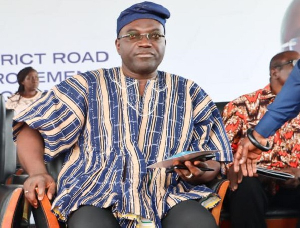Telecom companies in the country are facing tough times as their operational costs continue to soar, a phenomenon which is threatening their existence. Key among the challenges are unstable power supply, depreciating cedi, SIM Box fraud, multiple taxes and what is described as unfriendly regulations by the industry regulator.
The situation has become so dire that only one out of the six operators is posting profit.
The situation, coupled with other economic challenges, is seriously threatening the profitability of the telecom industry while the state is also being denied revenue that would have accrued from its operations.
These came to light when the industry market leader, MTN Ghana, held its annual gathering dubbed ‘The Editors Forum’ in Accra last Tuesday to enlighten senior media practitioners about the operational challenges of not just the company but the industry as a whole.
The platform also provided the company with an opportunity to make some of its products and services known.
Addressing the editors, the Chief Executive Officer of MTN Ghana, Mr Serame Taukobong, said the industry players were going through tough times because of the many challenging economic conditions.
He mentioned, for instance, the depreciating cedi which was fast eating away the profits of the company.
Mr Taukobong said the charges for the services rendered were in the local currency while most of the inputs to run effectively were imported and noted that with the cedi falling again, the company required more local currency to convert into dollars to acquire inputs to run the business.
Presently, the cedi is trading at GH¢3.6 to US$1 at the interbank level and slightly more than that on the black market.
According to the Monetary Policy Committee, report for February this year, in January 2015, the cedi depreciated by 1.3 per cent compared to 7.8 per cent depreciation a year ago, a phenomenon experts fear could worsen to negatively impact the operations of the private sector in particular.
He also mentioned the unstable electricity supply across the country, otherwise called ‘dumsor,’ which compelled the company to run its equipment on generating sets and inverters at a high cost.
“If we do not ensure continuous running of these equipment, it will impact our service delivery negatively and we do not want our customers to experience that. As a result, we always ensure that our generators are running constantly and that is impacting seriously on our cost”, he said.
His call comes at a time all industry players are reeling under severe pressure from the power crisis.
On SIM Boxing, he said, “we were losing as much as US$800,000 a month but we had to invest heavily to acquire some new equipment that can detect these fast and that has paid dividends because we now lose US$100,000.”
According to him, apart from this being a loss to the company, the government was also losing heavily in terms of taxes.
Using other tariff regimes from other countries, Mr Taukobong said MTN could conclude that the main driver for SIM Box fraud was the arbitrage between the international termination rates and local call rates.
He recommended the removal of the fixed price which to him would result in increase in international traffic to Ghana, higher taxes for the government and less profit for the SIM Box, leading to reduction/elimination of bypass.
He said the company’s total payments to the state amounted to GH¢605 million in 2014.
On the company’s investments, he said MTN had allocated GH¢460 million to deal with network and IT investments, with about 90 per cent of the IT investment portfolio already underway.
This year, he said the company would improve its strategic partnerships and support data growth while expanding the customer satisfaction index.
He added that the company would also ensure value driven and segmented offerings while streamlining distribution network, saying “we will make the financial services and mobile money a priority.”
Mr Taukobong said MTN would roll out a lot more SME projects while ensuring leadership to drive innovation to capitalise on identified opportunities.
Business News of Thursday, 19 March 2015
Source: GNA

















